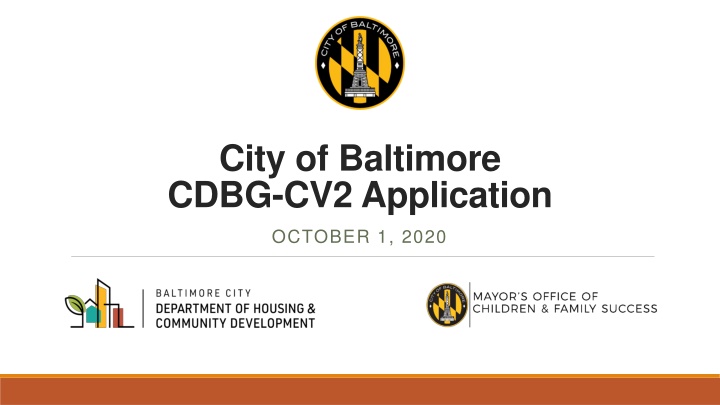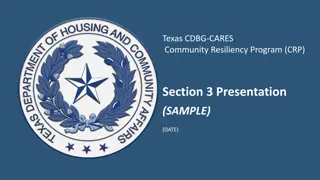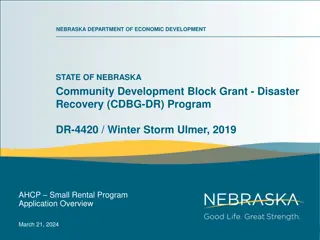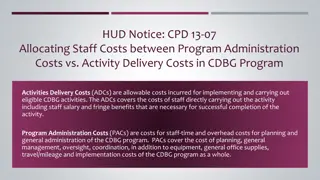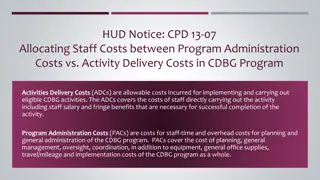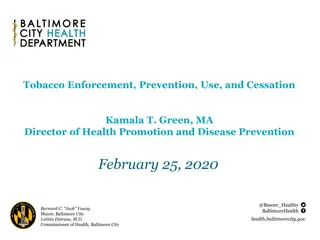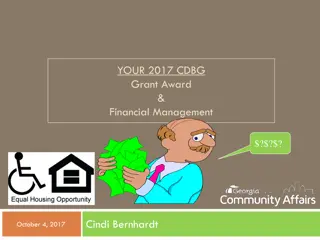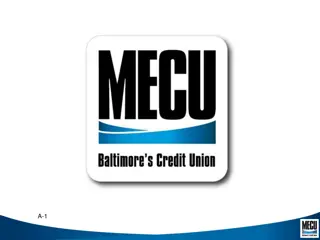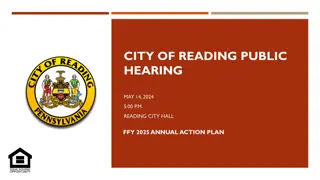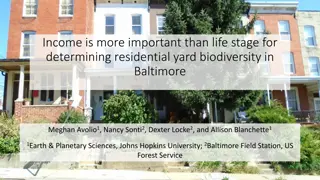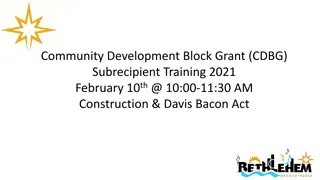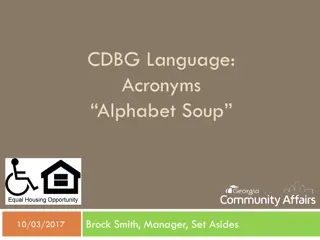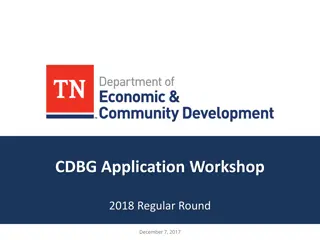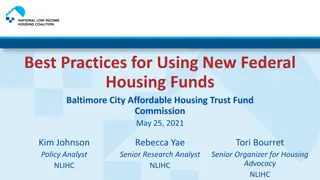City of Baltimore CDBG-CV2 Application
As the pandemic recession deepens, the City of Baltimore implements an evolving response to address the rental crisis. Various initiatives, funding sources, and long-term prevention efforts are outlined to support households in need of eviction prevention. The Mayor's Office of Children and Family Success leads the implementation of programs through the Baltimore City Community Action Partnership.
Download Presentation

Please find below an Image/Link to download the presentation.
The content on the website is provided AS IS for your information and personal use only. It may not be sold, licensed, or shared on other websites without obtaining consent from the author.If you encounter any issues during the download, it is possible that the publisher has removed the file from their server.
You are allowed to download the files provided on this website for personal or commercial use, subject to the condition that they are used lawfully. All files are the property of their respective owners.
The content on the website is provided AS IS for your information and personal use only. It may not be sold, licensed, or shared on other websites without obtaining consent from the author.
E N D
Presentation Transcript
City of Baltimore CDBG-CV2 Application OCTOBER 1, 2020
RENTAL CRISIS DEEPENING AS PANDEMIC RECESSION CONTINUES DHCD estimates based on: Maryland Multi-Housing Association US Census Bureau, landlord input
EVOLVING RESPONSE FOR AN EVOLVING CRISIS May - Sep 2020 Oct Dec 2020 Jan 2021 forward Eviction Moratorium in place Courts closed CARES Act financial supports: Federal stimulus. Enhanced unemployment. Courts hearing eviction cases Judgments will be made but reserved if COVID impact. CARES Act supports are over. Economic recession continues. Fall judgments can proceed to w/o further court action. Courts continue hearing cases. Uncertain economic situation. Temporary Rent Support (DHCD) Settle crisis-related back rent before courts reopened. Maximize scarce funding: Landlords discount rent. Tenants pay some back rent if got unemployment. Landlords agree not to file for 2 additional months. CARES Act Back Rent Recovery (MOCFS) Settle crisis-related back rent before evictions move forward. Mayor allocated more flexible funding to streamline process. Eviction Prevention (MOCFS) Support renters who still need help after 2020 interventions. Includes: Back rent OR Relocation services. Case management. Landlords agree not to file for period = that covered by the program. Eligibility: Eligibility: Eligibility: Low income households. COVID income impact. Back rent Apr-Jun. No unlicensed units. COVID income impact. Back rent Mar-Nov. Rents capped. Unlicensed units case by case. Low income households. Back rent up to 6 months. Rents capped. Unlicensed units case by case.
RESOURCES ASSEMBLED TO DATE Total of $29.8 million has been assembled for the City s eviction prevention efforts so far: $10 million in Coronavirus Relief Funds, which will be the primary source used this fall. $12.35 million in CARES Act Community Development Block Grant. $3.4 in CARES Act and regular Emergency Solutions Grant. $0.3 million in state Homelessness Solutions Program. $1 million in CARES Act Community Services Block Grant. $2.75 million from the City s Affordable Housing Trust Fund, which will be used for households who are not eligible for other sources.
APPLICATION CONTRIBUTES TO LONG-TERM RESPONSE Purpose of funding is to add to local resources for eviction prevention. State requires: Low income verification. COVID income impact documentation. Back rent only, up to 6 months. Landlords required not to file for eviction going forward for period equivalent to assistance: 1 month for 1 month coverage. 2 months for 2 months. And so on, up to 6 months for 6 months back rent coverage. If awarded, City estimates a $2 million grant will assist over 300 households in 2021.
IMPLEMENTATION The Mayor s Office of Children and Family Success will implement Eviction Prevention programs starting this fall, through the Baltimore City Community Action Partnership (BCCAP). Program expands services that BCCAP has provided in the past to meet the current need. To support Baltimore citizens facing eviction, BCCAP will collaborate with: Case management organizations Community based organizations Legal services providers Partner city agencies including the Department of Housing and Community Development and the Mayor s Office of Homeless Services.
FOR MORE INFORMATION Baltimore City Community Action Partnership www.bmorechildren.com/eviction-prevention 410-545-0900
